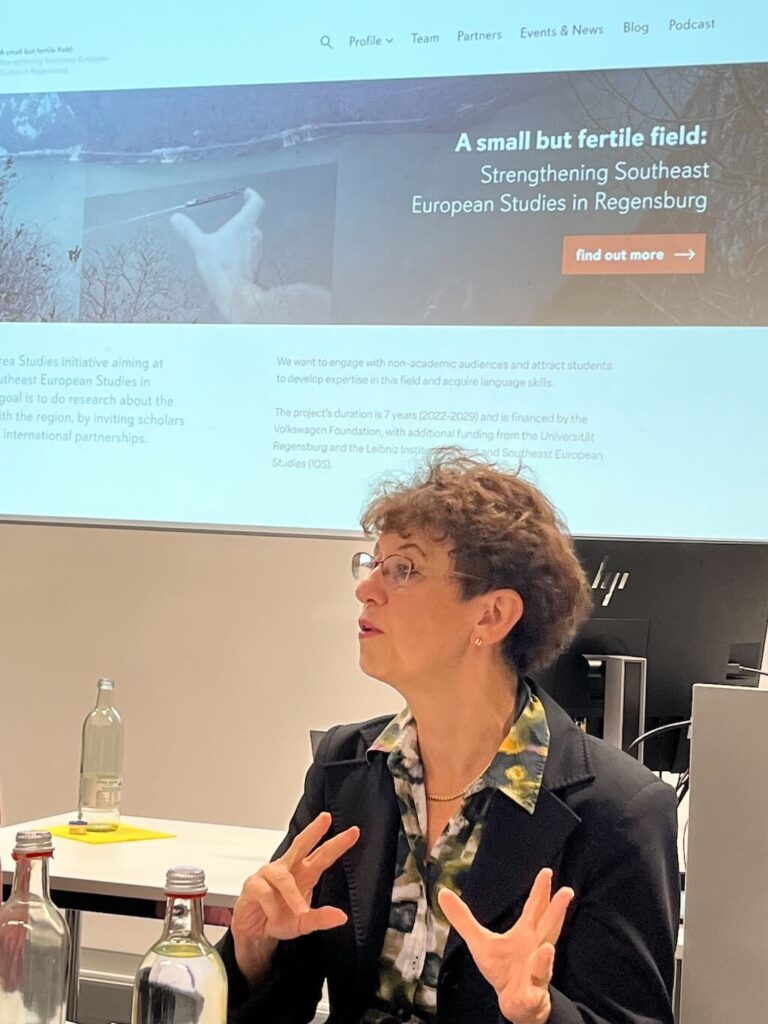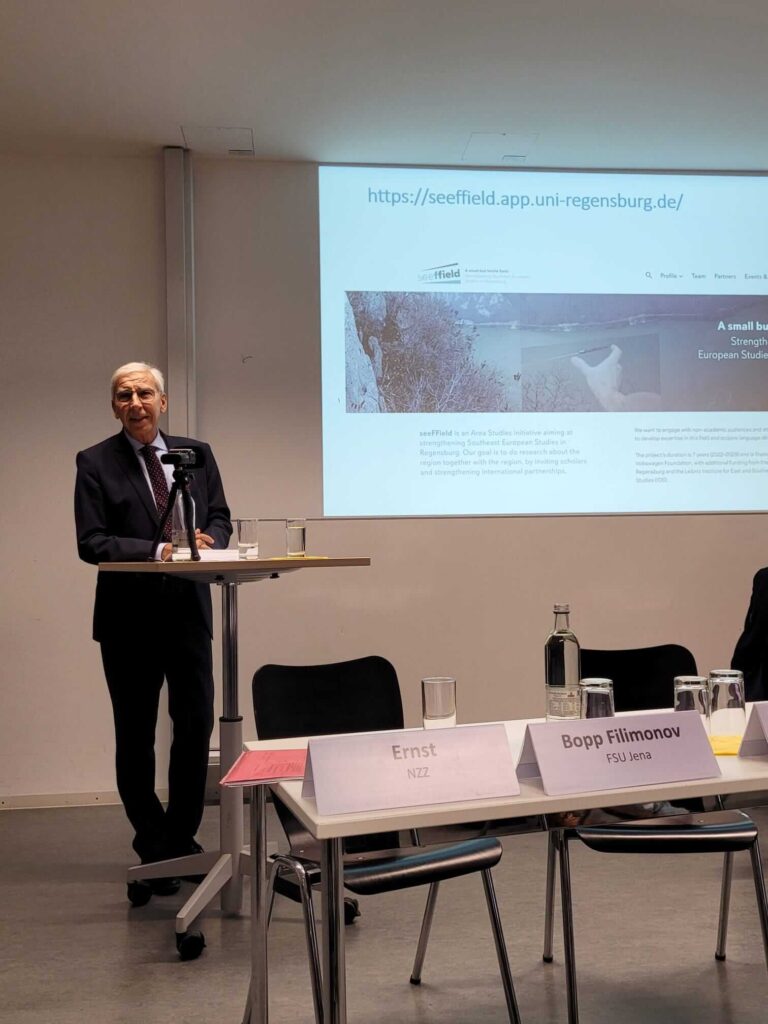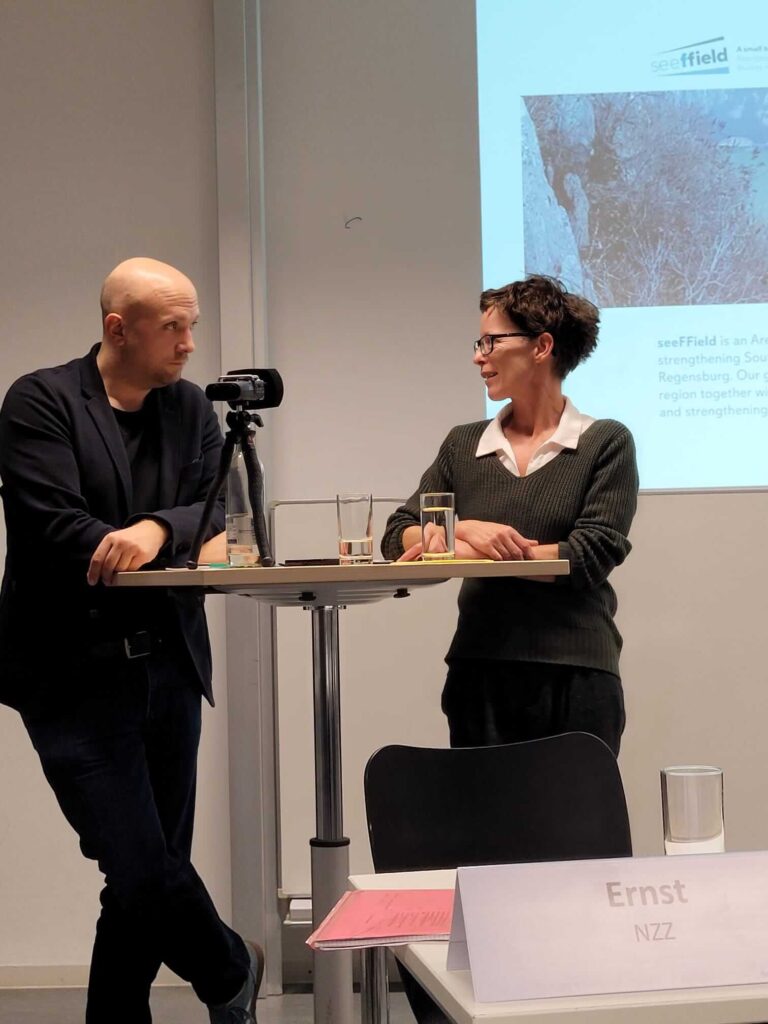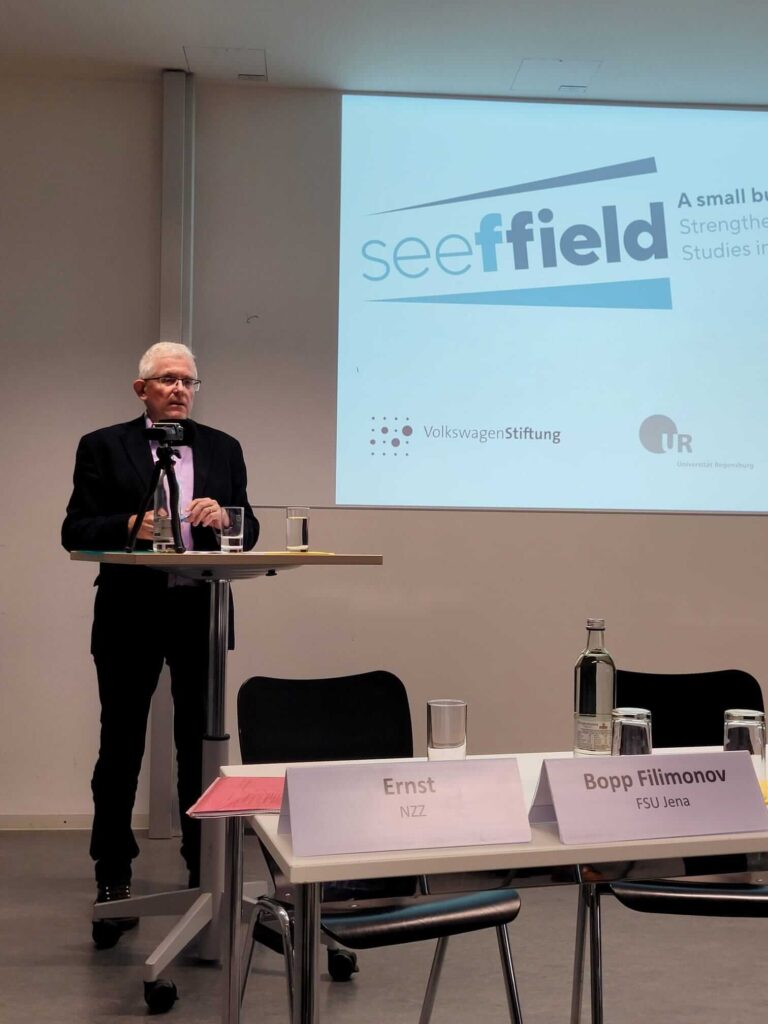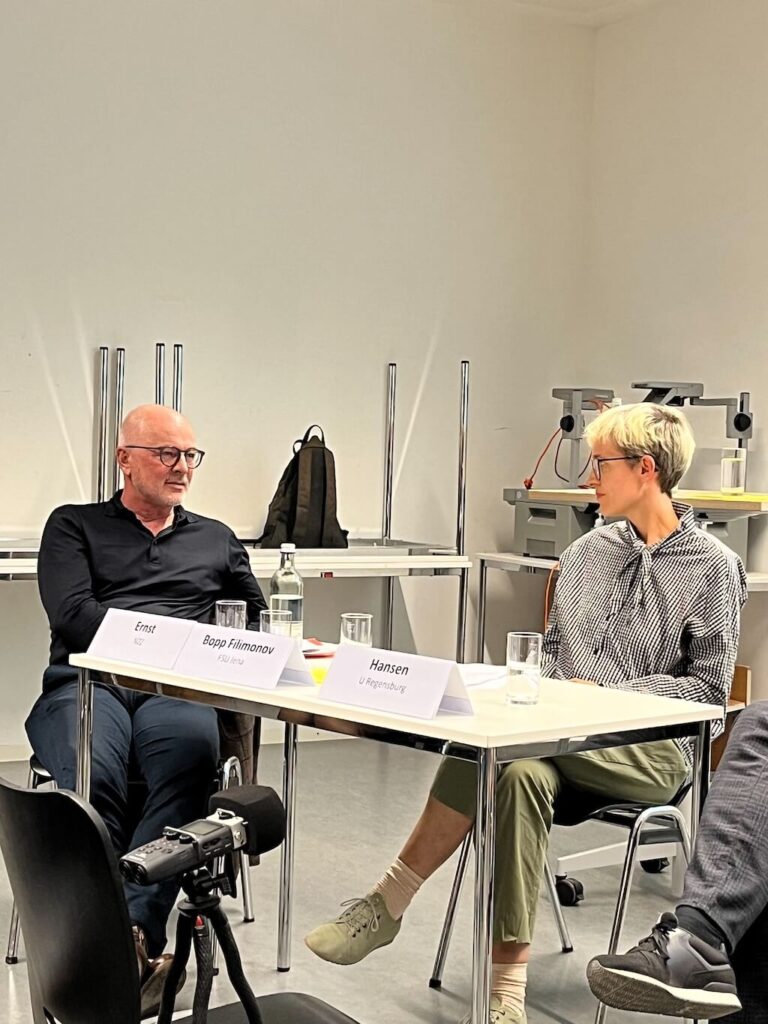“This project is the only one in Area Studies that was successful — because of the compelling integration of three crucial components: first, implementing existing knowledge and its further production in the course of the project, second, the linkage between several university structures engaged in area studies, and finally combining history, anthropology and languages“, Statement by Dr Vera Szöllösi-Brenig from the Volkswagen Foundation at the beginning of the panel discussion.
Opening event at the University Regensburg: About the region with the region
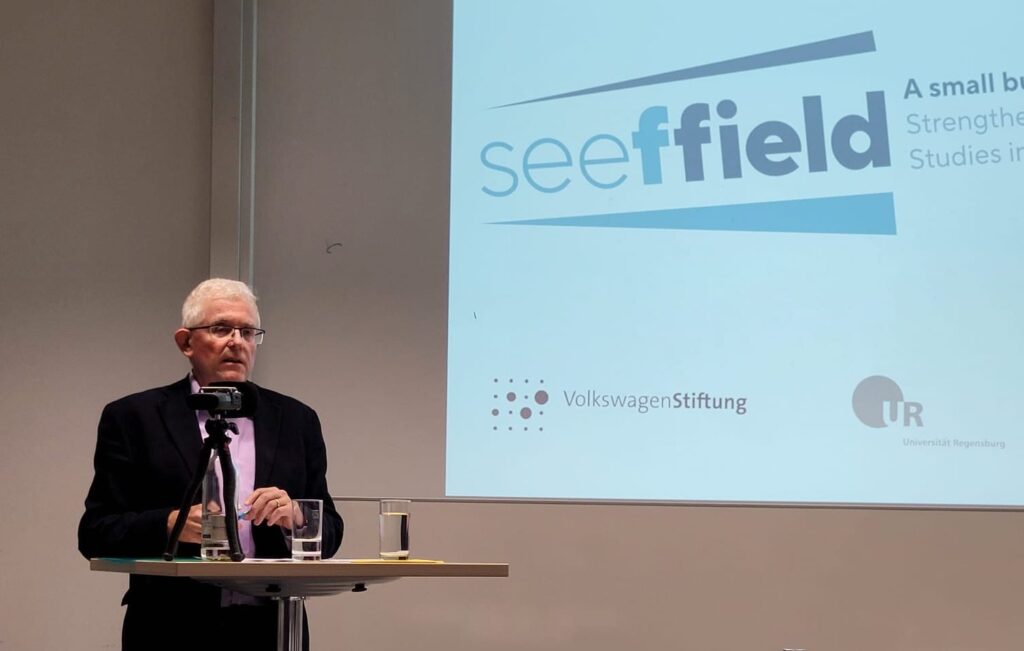
On 17 October 2022, the seeFField project was officially launched with a kick-off event in the Vielberth building of the University of Regensburg. Many colleagues, students and other guests attended the event, wanting to hear more about this ambitious initiative that will strengthen Southeast European Studies at Regensburg University. The event started with a few words of welcome and a short introduction by the project leader Professor Dr Ger Duijzings. He emphasised that it is important for the project to be embedded in the innovative Regensburg Area Studies cluster, the future agenda of which will be set by the Department for Interdisciplinary and Multiscalar Area Studies (DIMAS). The seeFField project, funded by the Volkswagen Foundation, the University of Regensburg and the Leibniz Institute for East and Southeast European Studies (IOS) will run from 2022 until 2029.
In his welcoming address, University President Professor Dr Udo Hebel described the seeFField project as further consolidating the University of Regensburg’s long-standing strategic focus on research on Eastern and Southeastern Europe.
Southeastern Europe is a diverse and multifaceted region that is of key interest to both academics and politicians. Academia and politics often meet, which can trigger valuable new insights, but also lead to the politicization of scholarly knowledge. The opening event reflected these intersections in the two main parts of the evening.
In the first part of the kick-off event Manuel Sarrazin, Special Representative of the German Government for the Countries of the Western Balkans and President of the Southeast Europe Association (SOG), gave a keynote entitled „Die Westbalkan-Sechs – Priorität der deutschen Außen- und Europapolitik“. He presented current German and European approaches to the region looking at forms of regional cooperation, energy, culture and youth policies. He stressed that Germany should not stop believing in EU enlargement but also that “Germany and the EU have to pull together” because “times are so serious that there are not many opportunities left.”
The subsequent panel discussion gathered renowned scholars from the field of Southeast European Studies to debate the geopolitical relevance of the region, and of Area Studies as an academic endeavour. One of the solutions to the challenge of the politicization of academic knowledge that seeFField has identified is to cooperate actively with scholars from the region and to incorporate vernacular knowledge into the research of everyday phenomena central to the region, such as migration, and language conflict.
